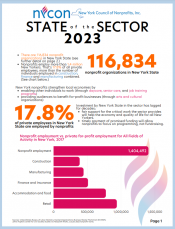Expanded Focus on Advancing Racial Equity and Support for Underserved Communities
Last week, President Biden signed an Executive Order on Equity and Support designed to strengthen the federal government’s ability to address the barriers that underserved communities continue to face. Among other things, it requires federal agencies to “consult with impacted communities as each agency develops its Equity Action Plan, funding opportunities, budget proposals, and regulations,” and “directs agencies to spur economic growth in rural areas and advance more equitable urban development by ensuring that federal resources contribute to building wealth and opportunity in these communities through locally-led development.” The new executive order builds on the Administration’s earlier “whole-of-government’ efforts to advance racial equity and support for underserved communities.
The Administration’s latest actions come at a time when federal policies and their impact on race are coming under greater scrutiny. This month, the Urban-Brookings Tax Policy Center issued a detailed study of the tax code based on simulations (because the IRS does not collect data on the race or ethnicity of taxpayers), observing, among other things, that the “tax code can widen existing racial income and wealth inequalities because of longstanding disparities in housing, education, and employment policies and practices,” and “Black or Hispanic [taxpayers] are more likely to be in the bottom of the income distribution and less likely to be in the top.” Taxpayers who itemize their deductions “generally have relatively high income,” and in the year studied (2019), only 11% of individual taxpayers were itemizers. Taxpayers who are “Black or Hispanic report lower amounts of institutional giving than those classified as White on average. Those factors suggest that the deduction for charitable contributions is likely to disproportionately benefit tax units classified as White, even within a given income class.” A separate analysis from a team of economists from academia and the U.S. Treasury Department found that Black taxpayers are audited by the Internal Revenue Service at 2.9 to 4.7 times the rate of non-Black taxpayers.
FastView
- Impact of the End of National Health and Economic Emergencies: Last month, the Biden Administration announced that the declared COVID-19 public health and national emergencies will end on May 11, raising questions about what support systems and programs will and will not continue. Initial concerns arose that states will be able to remove individuals from Medicaid and other programs. This month, the Department of Health and Human Services issued a Fact Sheet clarifying that Medicaid will continue to cover all COVID-19 vaccinations without a co-pay or cost sharing through September 30, 2024, and state Medicaid programs must provide COVID testing for free through that same period.
- Employment Guidance on Remote Work: The U.S. Department of Labor issued a bulletin providing guidance to employers about ways the Fair Labor Standards Act (FLSA) and Family and Medical Leave Act (FMLA) apply to employees who work remotely all or part of the time. The bulletin includes answers in plain English to questions nonprofits may have about short break times, flexible work schedules, and meal times for staff who work remotely.
- New Data and Research on Volunteerism: AmeriCorps, in collaboration with the U.S. Census Bureau, released its annual Volunteering and Civic Life in America report that shows volunteerism trends at the beginning of the COVID-19 pandemic. The research finds that formal volunteering through organizations dropped from 30% of the public in 2019 to 23.2% in 2021. The updated findings also show that informal volunteering, such as doing a favor for a neighbor, remained stable. For organizations that rely on volunteers, the challenge is to create and expand formal volunteer opportunities, a challenge that was clearly exacerbated by the pandemic.
- Student Loan Litigation: On February 28, the U.S. Supreme Court will hear oral arguments in two cases challenging the authority of President Biden to “cancel” student debt. “Cancel” appears in quotations to emphasize that both cases focus on the ability of the Department of Education to “cancel” up to $10,000 in student loan debt (up to $20,000 for certain people). Neither case concerns the separate law on Public Service Loan Forgiveness through which employees of charitable nonprofits and governments earn forgiveness of their federal student loans in exchange for working in public service for 10 years.
⭐Free Webinar⭐
Student Debt and Public Service Loan Forgiveness (PSLF)
Understanding the IDR One Time Adjustment
You are invited to join the U.S. Department of Education and The Institute of Student Loan Advisors (TISLA) for a free webinar on March 7 at 1:00 pm Eastern covering income-driven repayments (IDR) on student loans and how the program relates to the Public Service Loan Forgiveness (PSLF). The session will cover the pros and cons of consolidation related to this one-time adjustment and PSLF, how to maintain your IDR forgiveness track once the adjustment is completed, and the effect on Parent Plus borrowers. Space is limited so please only register if you know you can attend. Register here.
Investing American Rescue Plan Act Funds
Last week the application process opened for smaller nonprofits in Michigan to access a $35 million grant fund supported by state American Rescue Plan Act (APRA) resources. The fund, called the MI Nonprofit Relief Fund, announced by the Michigan Nonprofit Association (MNA) and the Michigan Department of Labor and Economic Opportunity, will award grants between $5,000 to $25,000 to qualifying nonprofits. Nonprofits can expect to receive funds this spring or summer. The fund is expected to serve between 1,800 to 4,200 nonprofits. A separate APRA-funded grant program with $15 million called MI Nonprofit Impact, will open this spring to assist larger organizations working to lift people out of poverty. Learn more.
Local governments across the country also continue to allocate portions of their ARPA funds to support charitable nonprofits in their communities, including:
- Lowell, Massachusetts, opened applications for $4 million in funding opportunities that include a $2 million Facilities Rehabilitation Grant for nonprofits, and $500,000 for other projects and services.
- Last week, Bay City, Michigan, hosted a State of the Community event that highlighted ARPA investments such as $750,000 in nonprofit relief funds and $300,000 for child care facilities.
- Commissioners in Vigo County, Indiana, released their spending plan to distribute $15 million in funds to more than a dozen projects, including several nonprofits, pending approval from the County Council.
Worth Quoting
"These relief funds, which MNA tirelessly advocated for on behalf of Michigan nonprofits, are a lifeline for those who are most in need across the state. We will continue to advocate for nonprofits, while also ensuring that the program is consistent with federal and state requirements."
~Kelley Kuhn, President and CEO of the Michigan Nonprofit Association, in a news release announcing the application phase of the MI Nonprofit Relief Fund, Feb. 17, 2023.

Local Governments Still Counting on Pandemic Aid Despite Clawback Threat, Kery Murakami, Route Fifty, Feb. 14, 2023.
Taxes, Fees, and PILOTs
Local Governments Seeking Nonprofit Resources, Again
When local governments determine they are having money problems, their elected officials sometimes turn against charitable nonprofits in their communities that own tax-exempt properties as scapegoats. Local lawmakers in Providence, Rhode Island, are once again calling on Brown University to pay more to the local government even though properties are exempt from taxation. Legislation pending in the Massachusetts Senate would empower local governments – in apparent violation of the state constitution – to mandate that larger nonprofit property owners make “payments in lieu of taxes” (PILOTs) equal to 25% of the amount they would pay if not exempt. Last month, Pittsburgh’s Mayor issued an executive order directing the city’s finance and law departments to scrutinize tax-exempt properties to determine compliance with Pennsylvania law with the aim of levying taxes on properties they can challenge. The Mayor did what many politicians in the Commonwealth have done before: assert a large number for how much property in the jurisdiction is exempt from taxation – 34% in the case of Pittsburgh – and then imply that all of that property is owned by charitable nonprofits (when in fact the vast majority of exempt property is owned by local, state, and federal governments).
Worth Quoting
"New tax requirements would reduce the amount of funding available to nonprofits to do their work. Most nonprofits – be they large, medium, or small – operate on thin margins, so less funding would mean fewer services. Those margins are being pressured by inflation, and they will be wiped out if we have a recession. A recession would curtail all four major nonprofit revenue streams – individual donations, government funding, foundation grants, and earned revenue."
~ Jim Klocke, CEO of the Massachusetts Nonprofit Network, writing in Mandating tax payments from nonprofits is a bad idea, Commonwealth (Massachusetts), Feb. 15, 2023.
Employment Policies and Their Impact on Nonprofits
Lawmakers in several states are proposing numerous employment policy changes affecting nonprofits and for-profit businesses, and some are engaging state associations of nonprofits to help ensure clarity. Legislation in Mississippi would require the state’s Office of Workforce Development to partner with the Mississippi Alliance of Nonprofits and Philanthropy to create a prototype system to assess the needs and create a plan for increasing accountability, transparency, operational capacity, and information sharing for nonprofits awarded grants and contracts related to workforce development and employment services. A bill in the Vermont House seeks to eliminate the unemployment insurance exemption for nonprofits with less than four employees. It would also require the state Department of Labor to consult with Common Good Vermont to create information materials and outreach to nonprofits.
Legislators are also working to alter workforce protections and standards affecting many types of employment relationships. In North Carolina, legislation would abolish at-will employment in the state and add an implied covenant of good faith and fair dealing to every employment contract. A bill in the Alaska Legislature aims to expand the jurisdiction of the state’s Commission on Human Rights to provide nondiscrimination protections to employees of nonprofits that employ 15 or more workers. A Vermont measure would establish a Family and Medical Leave Insurance Program and fund for family and medical leave, financed through a new payroll tax.
Trend Spotting
Tinkering With Nonprofits Advocacy Rights
Some state lawmakers have mixed views – some would say confusing and misguided views – on the legal rights of charitable nonprofits to engage in advocacy. While legislation in Illinois would waive the lobbyist registration fee for nonprofits with budgets less than $5 million, bills in other states demonstrate an express bias on which charitable organizations should or should not exercise their rights. Bills in the Tennessee House and Senate, for instance, seek to exempt churches and religious organizations from financial disclosures for supporting or opposing measures relating to questions of public or private morality, including alcohol, drugs, abortion, marriage, or gambling. Going the opposite direction, a measure in Vermont would revoke the property tax exemption of any “churches and other public, pious, or charitable organizations” that engage in “any lobbying or other political activity on their property.” It would also require churches and nonprofits to certify annually that no disqualifying lobbying or other political activity has occurred.

Worth Quoting
Special-interest secrecy legislation "is a solution to a problem that simply does not exist. [It's] chasing a hypothetical threat of what might happen in the future based on something that didn't happen in the past."
~ Anne Hindery, CEO of the Nonprofit Association of the Midlands, quoted in Unicameral Update, Feb. 17, 2023, testifying in opposition to Nebraska legislation seeking to ban virtually all access – even on a confidential basis – to certain financial and other information of all forms of nonprofits and government contractors.
State Regulatory Revisions Under Consideration
Every year, state legislatures consider hundreds of bills to alter existing regulatory requirements affecting the accountability and governance of charitable nonprofits. Here is a sampling of recent measures:
-
Bills in Massachusetts (S.D. 929/H.D. 684) would permit remote communications for any annual, regular, or special meeting for nonprofits if authorized by the board of directors and permitted under the organization’s bylaws. The measures would permit remote communications to participate, be deemed present, and vote. During the pandemic, numerous states adopted temporary relief from in-person meeting requirements.
-
Legislation in New Mexico seeks to raise the audit threshold from $250,000 to $750,000. It would require nonprofits with revenues of less than $750,000 to file a balance sheet of assets, liabilities, and income.
-
In Utah, a bill that has passed in the House and Senate and is awaiting action by the Governor would clarify that all 501(c)(3) organizations are exempt from registration requirements for charitable solicitation. It would also permit the Division of Consumer Protection to provide a searchable list of organizations that engage in charitable solicitations in the state.
Case Study
Nonprofits Defend Reasonable RegulationsState associations of nonprofits support reasonable regulation of nonprofits to protect donors and the public’s trust in charitable nonprofits. The Colorado Nonprofit Association recently filed an amicus brief to support the Colorado Charitable Solicitation Act against a challenge by an out-of-state, for-profit call center that reportedly paid $250,000 in fines to the Federal Trade Commission and agreed to a five-year injunction to settle charges that its telemarketers had misled consumers,
The Colorado Nonprofit Association’s brief notes that before the Act, “charitable donation abuse was rife — some paid solicitors pocketed over 80 percent of the funds raised, and other solicitors deceived Coloradoans into donating thousands to nonexistent charities.” CNA’s brief continues, “The Act, which requires solicitors and charities to disclose accurate financial data, ensures that charitable fraud and greedy solicitors can no longer run rampant.” Challenge to Colorado Charitable Solicitations Act Could Decrease Trust in Nonprofits, Catie Cheshire, Westword, Feb. 10, 2023.
Commentary
Expanding Access to Affordable Child Care
by Jessica Mendieta
A challenge for nonprofits trying to recruit and retain staff is the inability of prospective and current employees to find affordable child care. It was the second biggest factor cited by respondents to the workforce shortage survey conducted in late 2021 by the National Council of Nonprofits (NCN). Parents cannot reenter the workforce if they are unable to find child care, and charitable nonprofits that serve as child care providers are hesitant to pass rising operating costs on to families who are already struggling to afford enrollment. Read the entire blog post that highlights adopted and proposed policy solutions from around the country.
Numbers in the News
1,404,492
The number of employees working at nonprofit organizations in New York State, more than work in the construction and retail sectors combined.
Source: State of the Sector 2023, New York Council of Nonprofits, February 2023.
Nonprofit Advocacy Events
- Feb. 23, 2023 Day of Advocacy, Alliance of Arizona Nonprofits + Arizona Grantmakers Forum
- Mar. 2, Advocacy Summit, Oklahoma Center for Nonprofits
- Mar. 7, Nonprofit Day on the Hill, Kansas Nonprofit Chamber
- Mar. 7, Nonprofit Day at the Capitol, Michigan Nonprofit Association
- Mar. 8, Nonprofit Day at the Capitol, Kentucky Nonprofit Network
- Mar. 28, Legislative Reception, Iowa Nonprofit Alliance
Nonprofit VOTE Webinar
Getting Voters Interesting in Local Elections
Feb. 23, 2023 | 2:00 pm Eastern
Recognizing that local elections often have lower turnout, this webinar focuses on how nonprofits can advance their missions and promote civic engagement through strategies for engaging voters in multiple nonpartisan ways. Register now!
In Praise of Letters to Leaders
Nonprofit lobbying takes many forms. There’s direct one-on-one lobbying. There’s grassroots mobilization that empowers multiple voices to be heard. And then there’s the sign-on letter that blends the best of both forms of lobbying – a direct appeal on a legislative priority – including “the ask” – and a showing of significant support. This article highlights several state-of-the-art advocacy letters to make the point that communicating with elected officials comes in many forms and the work products can have multiple uses. Read more.

